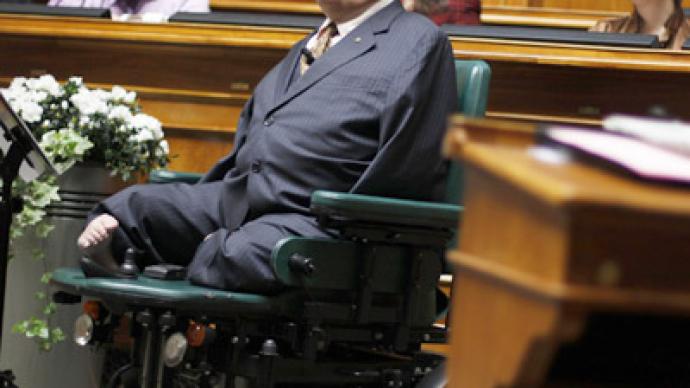After 50 years, thalidomide creator apologizes to drug's victims

The German drug company that produced the infamous thalidomide, which caused birth defects worldwide in the '50s and '60s, is now asking for forgiveness from the drug's victims. Many survivors and their families have rejected the apology.
Thalidomide, a powerful sedative, was developed by German pharmaceutical company Grünenthal GmbH. The drug was sold in nearly 50 countries under various trademarks from 1957 to 1961 as a tranquilizer and painkiller. It was particularly popular among pregnant women as an effective remedy for morning sickness.In 1961, Australian obstetrician William McBride and German pediatrician Widukind Lenz revealed research proving the drug caused birth defects. As a result of the prenatal use of thalidomide, more than 10,000 babies in 46 countries (some estimates put the number as high as 20,000) were born with shortened or missing limbs and other deformities, which were fatal in most cases.The drug was immediately taken off the shelves – the last batch in Canada in early 1962. Thousands of those who survived thalidomide-related birth defects are still alive, and coping with lifelong disablities.For decades, Grünenthal denied any liability, claiming that it had conducted the clinical trials required at the time. The thalidomide scandal prompted an international overhaul in drug-testing systems.On August 31 of this year, Grünenthal CEO Harald Stock announced that his company was "very sorry" for the half-century of silence for thalidomide victims."We ask for forgiveness that for nearly 50 years we didn't find a way of reaching out to you from human being to human being," Stock said during a ceremony in the German city of Stolberg, where a bronze statue was unveiled of a child born without limbs because of thalidomide."We ask that you regard our long silence as a sign of the shock that your fate caused in us,” he said.Thalidomide survivors slammed the apology, saying it was an "insulting" response to the thousands currently suffering disabilities from the drug."We had to get up and face each day, every day, and cope with the incredible damage that Grünenthal did," told CBC News Wendy Rowe from Melbourne, Australia, a mother of Lynette Rowe who was born without arms and legs after her mother took thalidomide. Thalidomide survivor from Canada Paul Murphy described it as a "good joke," and an "insult."Berrisford Boothe, 51, is one of 26 known American survivors of thalidomide, and is now an associate professor of art at Lehigh University in Bethlehem, Pennsylvania. He told the New York Times that Grünenthal company has been making billions of dollars over the last 50 years while “we struggled and our parents committed suicide.”“And now, they’re apologizing for not saying anything. How dare they do that and think it’s going to be enough?” Boothe said.Glenn Hanson, head of a UK-based thalidomide charity that represents people affected by the drug, criticized Grünenthal for apologizing "50 years too late." “My initial thoughts and feelings went out to the parents who fought such a fantastic campaign against this company back in the 70s, who fought with tooth and nail against them, who were up against a corporation that was adamant that they weren't going to pay any compensation,” Hanson said.Grünenthal has settled numerous thalidomide lawsuits, and as of 2010 reportedly made 500 million euros in total payments to victims. The number of thalidomide lawsuits continues to increase.Despite the controversy, thalidomide is still sold today as pain relief for terminal cancer sufferers, such as myeloma and a bone marrow cancer, as well as AIDS and leprosy.














